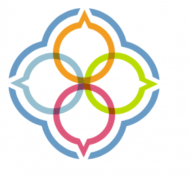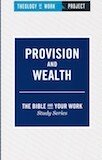Seven Breaths
Blog / Produced by The High Calling
“The wise are cautious and turn away from evil, but the fool throws off restraint and is careless.” Proverbs 14:16
The Code of the Samurai stated that every decision must be made within the space of seven breaths. Alfred North Whitehead stated the same idea in different terms. He said that the most austere of all mental qualities is a person’s sense for style, which he defined as an “aesthetic sense, based on admiration for the direct attainment of a foreseen end, simply and without waste.” He went on: “Style in art, style in literature, style in science, style in logic, style in practical execution have fundamentally the same aesthetic qualities, namely, attainment and restraint.”
A few years ago, I ran a ranch in northern California. Every morning, seven days a week, at six a.m., rain or shine, I was up. Ranch hands wouldn’t arrive until eight; and in the meantime, there were more than 50 animals to attend to, generators to turn on, barn doors to open. Never in my life had I been so disciplined. Never in my life had I been so happy. Severe constraints framed my life and my time, but those constraints, oddly enough, also gave my life meaning and substance. I had never slept so well, worked so hard, felt so at peace, or been as healthy as when I worked at Starr Ranch. The constraints, in a way, freed me.
Self-mastery, something rarely heard about in Christian circles, is elemental to being truly alive—which takes us back to Whitehead’s paradoxical notion of attainment and restraint. I call it freedom through discipline. It is when we are under constraints that we are most fulfilled—in the midst of parameters, not in their absence. God knew this when He gave us the Ten Commandments. And Jesus knew this when he upped his Father’s ante with His “You have heard it said of old . . . but I say to you . . .” speech. We work best when we receive limits; or, in their absence, when we apply limits to ourselves.
That is the paradoxical key to deep and meaningful living. But it isn’t achieved by gritting our teeth. It is achieved by opening our eyes. When we see for the first time and actually embrace the constraints, when we begin to notice the hidden eccentricities of life, we are moved to participate in that life. We want to attain to that life, and we find we can only do so by restraining ourselves. But here’s the rub. Self-mastery, as Whitehead points out, is a sense of style, and you can’t force a sense of style any more than you can, say, try to fall in love. No one white-knuckles his way to heaven. Restraint is emancipation, not imprisonment. We are suddenly free, in letting go, to be who we are called to be. “Die before you die,” C.S. Lewis said. “There is no chance after.” Whitehead put it this way, “The administrator with a sense for style hates waste; the engineer with a sense for style economizes his material; the artisan with a sense for style prefers good work. Style is the ultimate morality of mind.” Scientists call it elegant simplicity. Artists call it creative beauty. Christians call it the Narrow Road.
Do you truly want to live? Are you willing to die? Decide in seven breaths.





